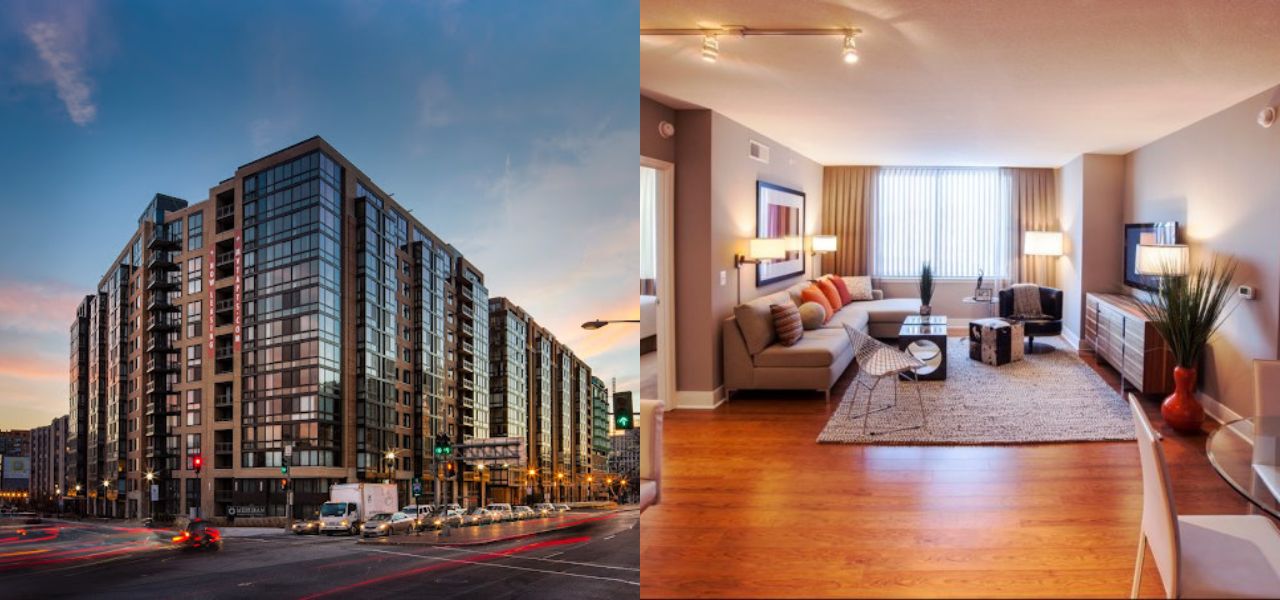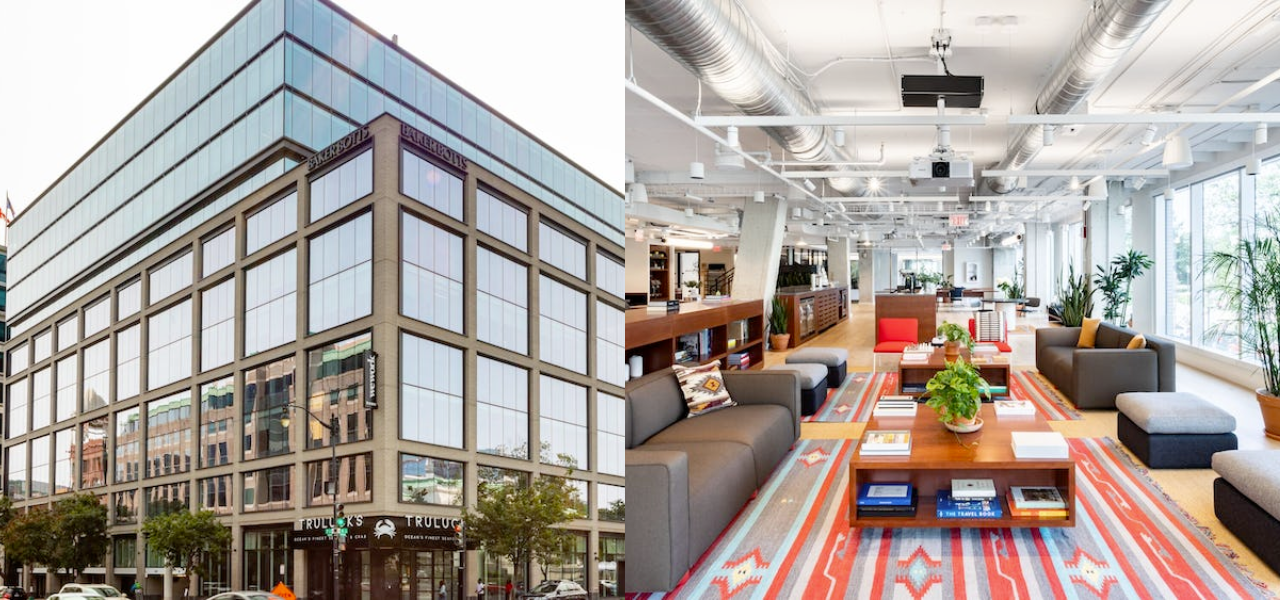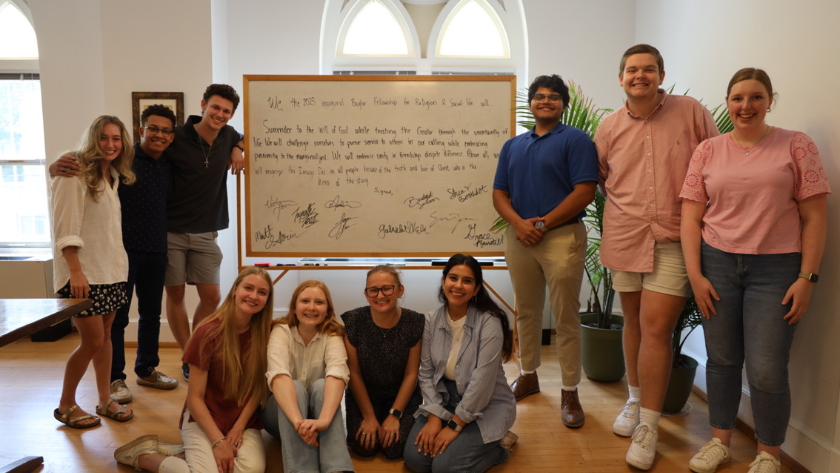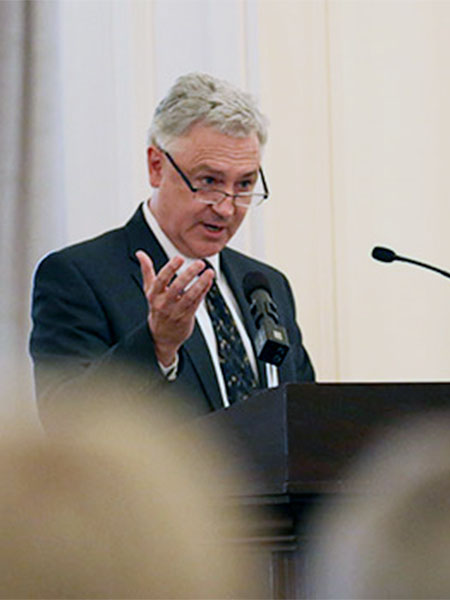Summer Fellowship for Religion & Social Life
Study, grow, and explore your vocation in Washington
Applications for the Summer 2024 cohort are now closed. Please check back in the Fall of 2024 for information about the Summer 2025 applications, or contact Beth_Butler1@Baylor.edu for more information.
A two-month summer intensive in D.C. for students to explore the social benefits of religious communities while undergoing intentional spiritual formation as well as professional development for a life of service and leadership.
About the Program
- Spend 8 weeks in Washington, D.C. living, learning, and working in the heart of the city
- All expenses paid (transportation, housing, travel) plus a weekly stipend for meals and incidentals
- Interdisciplinary seminars on topics related to public policy and the social impact of religion
- Professional internships with organizations working at the intersection of religion and politics
- Professional/leadership development and networking opportunities
- Spiritual formation programming and exposure to religious communities in Washington
Seminar Learning
Students will spend 15-20 hours a week in interdisciplinary, academic seminars with experts from D.C. and partner universities. These seminars are not for course credit. Seminar topics include:
- Religion and International Human Rights
- Evidence-Based Solutions to Poverty
- Religion and Human Flourishing
- Religious Liberty
- Religion, Race, and Law Enforcement
- And more!
Internships
Summer Fellows will work 20 hours a week in part-time internships at diverse internships around D.C.
Internship organizations will often work at the intersection of religion and public life; however, this is not a requirement for an internship placement. Past Summer Fellowship internships have included: the Center for Public Justice, the Center for Christianity and Public Life, Thrive Architects, and the Religious Freedom Institute.
Spiritual Formation
Students will participate in regular spiritual formation programming to examine the practices of spiritual life, faith in the context of community, and historic traditions of religious communities. As a group, the cohort will practice the spiritual disciplines of silence, hospitality, and service.
Housing
Students will live in 4-person apartment units (2-bed, 2-bath) with other Baylor in Washington students at the Meridian Mt. Vernon Triangle, located in the heart of Washington, D.C. with easy access to multiple metro lines.
These apartments come equipped with: all utilities, including wireless internet access; full kitchen, including dishware, cookware and appliances (toaster, microwave, coffeepot, etc.); Bedding, linens, and towels; Laundry facilities (irons/ironing boards included); Rooftop deck and swimming pool; In-building fitness center; 24-hour front desk, mail, and package services; 24/7 Emergency Maintenance.

Professional Development
- Mentorship
- Students are paired with Baylor alumni mentors based on their academic or professional interests. Students and mentors meet throughout the summer.
- Professional Development
- Work with experts to improve your resume.
- Professional headshots.
- Frequent workshops covering various topics: the legislative process, networking, workplace etiquette, interviewing, public writing, strategic communications.
- Site Visits
- Students visit organizations around D.C. and receive private access and briefings from staff members. Locations include: The U.S. Capitol, the Supreme Court, International Justice Mission, the Pinkston Group, the U.S. Committee on International Religious Freedom, AMD, Washington Navel Base, D.C. State Board of Education, NASA, and many more!
Office and Workspace
Students have access to Baylor in Washington’s coworking space, WeWork, which includes conference rooms and workspace for Baylor students to work on academics on evenings and weekends.

Physical Requirements
Before applying to this program, please take into consideration the light physical demands required by some of this program’s activities. Activities include walking moderate distances on sometimes hilly, uneven, and/or cobbled terrain, climbing up stairs, using public transportation, and standing during tours and site visits. If you have questions or are concerned about any of these activities, please contact the faculty program director.

